Related Research Articles
Interlibrary loan is a service that enables patrons of one library to borrow physical materials and receive electronic documents that are held by another library. The service expands library patrons' access to resources beyond their local library's holdings, serving as "an integral element of collection development" for libraries.
A public lending right (PLR) is a program intended to either compensate authors for the potential loss of sales from their works being available in public libraries or as a governmental support of the arts, through support of works available in public libraries, such as books, music and artwork.
The International Federation of Library Associations and Institutions (IFLA) is an international body representing the interests of people who rely on libraries and information professionals. A non-governmental, not-for-profit organization, IFLA was founded in Scotland in 1927 with headquarters at the National Library of the Netherlands in The Hague. IFLA sponsors the annual IFLA World Library and Information Congress, promoting access to information, ideas, and works of imagination for social, educational, cultural, democratic, and economic empowerment. IFLA also produces several publications, including IFLA Journal.
The International Publishers Association is an international publishing industry federation of national publisher associations representing book and journal publishing, founded in 1896 in Paris. It is a non-profit and non-governmental organization, to promote and protect publishing and to raise awareness for publishing in the context of economic, cultural and political development. The IPA represents the interests of the publishing industry on an international level.
The Publishers Association (PA) is the trade organisation serving book, journal and electronic publishers in the United Kingdom, established in 1896. Its mission is "to strengthen the trading environment for UK publishers, by providing a strong voice for the industry in government, within society and with other stakeholders in the UK, in Europe and internationally." It seeks to provide a forum for the exchange of non‑competitive information between publishers and to offer support and guidance to the industry through technological and other changes.
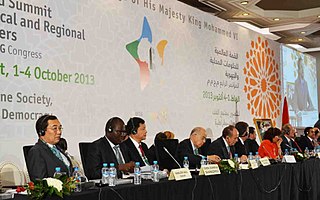
United Cities and Local Governments (UCLG) is an umbrella international organisation for cities, local and regional governments, and municipal associations throughout the world that is concerned with representing and defending the interests of local governments on the world stage.

James G. Neal is an American librarian, library administrator, and a prominent figure in American and international library associations. In 2022 President Joe Biden appointed him to the National Museum and Library Services Board which advises the agency on general policies with respect to the duties, powers, and authority of the Institute of Museum and Library Services relating to museum, library, and information services, as well as the annual selection of the National Medal for Museum and Library Service.
The European Association of Science Editors is a non-profit membership organisation for people interested in science communication and editing. Founded in 1982, in France, EASE now has an international membership.
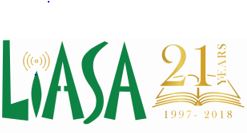
The Library and Information Association of South Africa (LIASA) is a professional non-profit organization, representing all institutions and people working in libraries and information services in South Africa.

Culture 21, also known as Agenda 21 for culture, is a program for cultural governance developed in 2002–2004 and organized by United Cities and Local Governments.

The United Nations created 17 world development goals call the Sustainable Development Goals (SDGs). They were created in 2015 with the aim of "peace and prosperity for people and the planet, now and into the future."
Open educational resources (OER) are learning materials that reside in the public domain or have been released under an intellectual property license that permits their free use and re-purposing by others. OER policies are adopted by governments, institutions or organisations in support of the creation and use of open content, specifically open educational resources (OER), and related open educational practices.

Glòria Pérez-Salmerón is the Stichting IFLA Global Libraries Chair from August 30, 2019 and was Director of the National Library of Spain (BNE). She was President of the Spanish Federation of Societies of Archivists, Librarians, Documentalists and Museology (FESABID) from 2014 to 2018 and from 2017 to 2019 President of the International Federation of Library Associations and Institutions (IFLA).
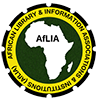
The African Library and Information Associations and Institutions (AfLIA), commonly referred to as AfLIA, is an international not-for-profit organization headquartered in Accra, Ghana. The Association is registered under the laws of Ghana as an NGO. It is managed under the general guidelines of its Constitution and by-laws.The Institution is currently being led by Dr. Helena Asamoah-Hassan as the Executive Director.
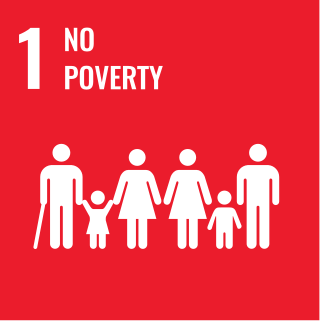
Sustainable Development Goal 1, one of the 17 Sustainable Development Goals established by the United Nations in 2015, calls for the end of poverty in all forms. The official wording is: "No Poverty". Member countries have pledged to "Leave No One Behind": underlying the goal is a "powerful commitment to leave no one behind and to reach those farthest behind first".

The "Sustainable Development Goals and Australia" describe how Australia participates in the Sustainable Development Goals (SDGs) process. The SDGs are a collection of 17 global goals designed to be a "blueprint to achieve a better and more sustainable future for all". The SDGs, set in 2015 by the United Nations General Assembly and intended to be achieved by the year 2030, are part of a UN Resolution called "The 2030 Agenda". The targets and indicators for the SDGs are included in the UN Resolution adopted by the General Assembly two years later on 6 July 2017.
Sustainable Development Goals and Lebanon explains major contributions launched in Lebanon towards the advancement of the Sustainable Development Goals SDGs and the 2030 agenda.
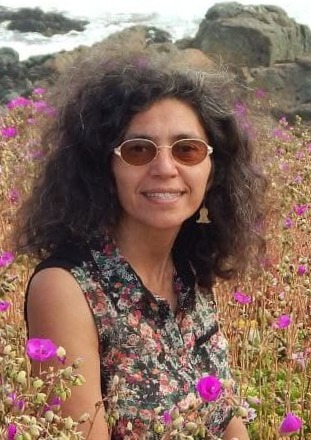
Lucía Abello is a Chilean librarian, naturalist and botanist. She has been in charge of exploring, researching, documenting and disseminating the native flora in her region and in her country, as well as its traditional uses through photography and bibliographic publications. She has also been in charge of promoting reading from the public library with a respect for the environment approach.

The Canadian Federation of Library Associations / Fédération canadienne des associations de bibliothèques (CFLA-FCAB) is a non-profit federation of Canada’s library associations. It was incorporated on 16 May 2016 and replaced the Canadian Library Association (CLA).

Camille Callison is an Indigenous librarian, archivist, academic, and cultural activist who is a member of the Tsesk iye (Crow) Clan of the Tahltan Nation in what is now known as British Columbia, Canada. She is the University Librarian at the University of the Fraser Valley in Abbotsford. Callison is an advocate for the rights of Indigenous peoples and knowledge, particularly as these rights intersect with GLAM institutions. Callison is actively involved across local, national, and international professional associations related to the library and informational needs of Indigenous peoples, including in her role as co-lead of the National Indigenous Knowledge and Language Alliance (NIKLA).
References
- 1 2 3 4 Reding, Jean-Marie (2016). A History of EBLIDA: The first 25 years of the European Bureau of Library, Information and Documentation Associations . Retrieved 2023-07-24.
- ↑ EBLIDA (2023). Annual Report 1 May 2022 - 1 April 2023 . Retrieved 2023-07-24.
- 1 2 3 4 5 6 7 8 Baude, Lena (2016). A la recherche de l'intérêt général? Les associations de bibliothécaires et l'Union européenne (1992-2015). Villeurbanne: ENSSIB. Retrieved 2023-07-24.
- 1 2 Rösner, Helmut (2002). "Das essbare Buch: zehn Jahre EBLIDA". Bibliotheksdienst. 36 (7895): 896.
- ↑ European Association for Health Information and Libraries. "European Information Association to go ahead" (PDF). European Association for Health Information and Libraries newsletter (16): 17.
- ↑ "Founding Organisations - European Bureau of Library Information and Documentation Associations (EBLIDA)". www.eblida.org. Retrieved 2023-09-26.
- ↑ Owen, John Mackenzie (2017). "Looking Back at the Telematics for Libraries Programme 1990-1998". LIBER Quarterly. 26 (4): 217–224.
- ↑ Vitiello, Giuseppe (2014). International Librarianship in Europe (1990-2000) . Paper presented at: IFLA WLIC 2014 - Lyon - Libraries, Citizens, Societies: Confluence for Knowledge in Session 71 - Library History Special Interest Group. In: IFLA WLIC 2014, 16–22 August 2014, Lyon, France. Retrieved 2023-09-26.
- ↑ Aslan, Selma Alpai (2012). "Use of technology in Libraries in the European Union towards 2020". In Sharma, Ravindra N. (ed.). Libraries in the early 21st century. Vol. 2. Berlin/Munich: De Gruyter Saur. ISBN 978-3-11-029285-5.
- ↑ Vitiello, Giuseppe (2021). "The Economic Foundation of Library Copyright Strategies in Europe". LIBER Quarterly (31): 1–40.
- ↑ EBLIDA (2022). Strategic Plan 2022-2025 . Retrieved: 2023-07-25.
- ↑ "Resourcing Libraries – Connecting libraries to EU Resources" . Retrieved 2023-09-26.
- ↑ "Agenda 2030 for sustainable development - European Bureau of Library Information and Documentation Associations (EBLIDA)". www.eblida.org. Retrieved 2023-09-26.
- ↑ "SDG-KIC: Knowledge and Information Centre - European 2030 Agenda for libraries - European Bureau of Library Information and Documentation Associations (EBLIDA)". www.eblida.org. Retrieved 2023-09-26.
- ↑ "The EBLIDA Matrix - European Bureau of Library Information and Documentation Associations (EBLIDA)". www.eblida.org. Retrieved 2023-09-26.
- ↑ "EBLIDA Newsletter March 2023". Mailchimp. Retrieved 2023-09-26.
- ↑ "Fundraising – General and Structural Funds - European Bureau of Library Information and Documentation Associations (EBLIDA)". www.eblida.org. Retrieved 2023-09-26.
- ↑ "E-lending - European Bureau of Library Information and Documentation Associations (EBLIDA)". www.eblida.org. Retrieved 2023-09-26.
- ↑ "Adoption of the Council of Europe Recommendation on Library legislation and policy in Europe - Culture and Cultural Heritage - www.coe.int". Culture and Cultural Heritage. Retrieved 2023-09-26.
- ↑ Council of Europe (2023). "Adoption of the Council of Europe Recommendation on Library legislation and policy in Europe". Culture and Cultural Heritage: newsroom. Retrieved 2023-07-25.
- ↑ "Constitution - European Bureau of Library Information and Documentation Associations (EBLIDA)". www.eblida.org. Retrieved 2023-09-26.
- ↑ "Publications - European Bureau of Library Information and Documentation Associations (EBLIDA)". www.eblida.org. Retrieved 2023-09-26.
- ↑ "EBLIDA Position Papers and Statements - European Bureau of Library Information and Documentation Associations (EBLIDA)". www.eblida.org. Retrieved 2023-09-26.